A well-written, witty article about the 2011 Scottish Championship, that raises crucial questions surrounding how chess tournaments are organized, (under) funded, and played these days. By the way, IM Ketevan (Keti) Arakhamia-Grant (SCO 2464) won the championship title (Scotland's 118th Championship!!!) with a hard-fought final round win against a locally known player (but unknown to everyone else) Tony Dempsey, who had entered the final round with 6.5/8!
From the calendonianmercury.com
A tight contest with funding worries: the Scottish chess championship
July 24, 2011 by Dave Hewitt
Last Sunday, just as one experienced and popular competitor emerged victorious after several days of intense effort on the rainswept coast of Kent, so something similar was happening in the Stockbridge area of Edinburgh.
OK, so Ketevan Arakhamia-Grant – Keti, as she is known – plies her trade indoors, is of a somewhat slimmer build than Darren Clarke and her area of expertise is always likely to be way behind Clarke’s in terms of mainstream coverage and public awareness. But both victories were well received, and each event – the Open golf and the Scottish chess championship – appears to have left onlookers and officials satisfied with the fare on offer.
The 118th Scottish chess championship proved to be an interesting and tense nine-day contest. It was more competitive than generally anticipated, given that there had been a fair chance of the Ochamchira-born, Edinburgh-based player strolling away with the title rather than – as actually happened – having to scramble for it in the final round.
Arakhamia-Grant was the only grandmaster (GM) in the 37-player field, and the only serious challenge was expected to come courtesy of international master (IM) Craig Pritchett – Scottish champion in 1977 and 2005. IM is the next title down from GM – think BA as against MA, although either chess title is markedly harder to achieve than those academic honours. Outside bets for the title were two fast-improving young players – Clement Sreeves and Andrew Green – but beyond that it was hard to see how anyone else had much of a chance.
It was, therefore, a surprise when the leader at the start of the final round, with 6½ points out of 8, was Tony Dempsey – a little-known player from the Wandering Dragons club in Edinburgh. So little-known, in fact, as to cause 2007 champion Andrew Muir to comment on the Chess Scotland noticeboard that he had “never heard of him before this”.
The final round, with games potentially lasting six hours, saw Dempsey play Arakhamia-Grant, who was half a point behind (in chess a win counts as one point, a draw half). Also on 6/8, and facing each other, were Sreeves and Arakhamia-Grant’s husband Jonathan Grant, the 2006 champion. Given the nature of the tiebreak system, the only way for Arakhamia-Grant to take the title and the £1,200 first prize was for her to beat Dempsey and for the other game to be drawn – which is exactly what happened.
The top-board encounter ended first – after a lovely combination by the winner, but also a missed, near-impossible-to-spot chance to draw for Dempsey. There was then a curious domestic subplot, given that Jonathan Grant now only needed to prevent Sreeves from winning for the Grant household finances to benefit – although a win would have seen him take the title ahead of his wife. Chess is indeed a complicated game.
That Arakhamia-Grant had to battle for the title rather than cruise to it came about mainly through her having lost to Sreeves in round 3, then only drawing with Pritchett in a round 6 thriller. Pritchett later pointed out – in a magnanimous, such-is-life way – that he missed a clear chance to win that game because of trying to save time on the clock by repeating the position and thus allowing his opponent to claim a draw. He ended the tournament joint-second – on such brief but profound moments do victories come and go.
It could be argued, however, that the title ultimately hinged on two curious non-games. In round 6, Sreeves and Green opted to shake hands on a draw after just nine moves, while the much-anticipated Grant–Grant pairing in round 7 similarly lasted only 11 inconsequential moves before the café beckoned.
Both these games prompted collective groans from the watching online chess community, especially the clash of the unbetrothed. There has, in recent years, been a history of promising young Scottish players declining to play serious chess against each other. Whether this is linked to the lack of title-gaining success for Scots over the past decade or so is debatable – but there was frustration at seeing the practice recur in Edinburgh.
“Motwani, McNab, Condie, Mannion, Rowson, as juniors had the bottle to avoid premature draws – hardly coincidence they were the future titled players and Scot champs,” said 1996 and 1997 champion Douglas Bryson as he reeled off the names of various earlier Scottish chess stars – three eventual GMs and two IMs – who weren’t in the habit of quickly halving-out. “Of course easy to say sitting here on the sidelines,” Bryson added.
Whatever the ethics of quick draws (imagine if, say, Rangers and Celtic were able to shake hands and walk off the pitch five minutes into an Old Firm game), it seemed likely that one of the Sreeves–Green and Grant–Grant opt-outs would, come the final reckoning, look like a silly miscalculation, while the other would be seen as a masterstroke of energy-preservation – and so it proved.
So, a well-contested tournament with a clear and worthy winner: who could ask for more? Well, quite a few people on the Scottish chess scene – both players and organisers – remain uneasy about both the format and the future of the annual championship.
The various problems inter-relate: the structure of the tournament – how many rounds total, how many rounds per day? (At present it is nine rounds at one per day.) Should it be a small-format all-play-all for the top-ranked players, or a larger Swiss-style open event, as now, in which the overall field is broader but weaker?
And where should it be held? Not just the old seaside versus city debate – with cities in the ascendant at present – but also the even older west/east split. Glasgow/Edinburgh rivalry exists in many spheres, and the extent to which it crops up in chess can be seen in just how few west-of-Scotland players entered this year’s championship. The same, in reverse, tends to be true when the event is held on the rainy side of the country, and it seems a near-unbridgeable divide.
This isn’t a footballesque problem whereby Glasgow chess players dislike Edinburgh players and vice versa. They get on perfectly well (well, so they say); it’s just that both groupings seem reluctant to allocate the time, money and logistical commitment required to play in a nine-day tournament away from their home patch. And that’s without getting into debates about players based in Dundee, Inverness and so on.
The overarching problem, however – as in so many areas of life – is a lack of funding. Chess is not a sport in the official sportscotland sense (although some would like to see it go that way), and it being one of the least televisual of games severely limits the scope for advertising/sponsorship revenue.
“This event will run at a loss of about £500, though the paper loss which will include grading fees will be a couple of hundred more,” said tournament director Alex McFarlane, after the championship ended. “We were basically seven entries short of breaking even which can’t be too bad. The venue [the LifeCare centre] proved to be very popular – the players liked the staff and the staff liked the players. I would certainly use the venue again with a suitable event. The cost of the venue is less than the free venue last year [in the University of the West of Scotland at Hamilton] and much better. We had to pay for cleaning and security last time.”
With a new crop of strong young players coming through – it would be rash to bet against either Sreeves or Green (aged 19 and 21 respectively) winning the Scottish title in due course – and with the popularity of the game at the middle and lower levels remaining healthy despite the stay-at-home distractions of the internet and the general economic downturn, it is important for chess in Scotland to push on and progress.
Something approaching a full-strength Scottish championship would help – the country has five GMs and a similar number of IMs, but of these only Arakhamia-Grant and Pritchett played this time round. It has been some years since the Scottish chess champion was also unequivocally the strongest Scottish chess player. (At present, most observers would award the latter title to Jonathan Rowson – who has recently acquired a column in the Guardian, albeit one in which his byline profile makes no mention of his chess prowess.)
A genuinely strong championship, however, needs a large prize fund along with a suitable venue and substantial publicity in order to draw in the funders. This is not an easy combination to achieve, but there is plenty of confidence around. “I am extremely optimistic,” said McFarlane. “Unfortunately I am not in a position to say publicly why.”
One imminent boost for the game is that Lord Kirkwood – the appeal court judge and keen supporter of chess Ian Kirkwood – looks set to take on a formal role as honorary president of Chess Scotland. He will be proposed and seconded at next month’s AGM, with his election expected to go through. The extent to which this and other as yet unannounced developments will raise awareness of chess in Scotland and contribute to an increase in funding remains to be seen – but a lot of thought and work is being put in at the organisational level.
Of course, there could have been a much swifter solution to the financial worries had the recent EuroMillions winners from Largs – which has a lively chess club – been chess fans and willing to lob in a spare couple of hundred thousand for the good of the game…
From the calendonianmercury.com
A tight contest with funding worries: the Scottish chess championship
July 24, 2011 by Dave Hewitt
 |
| GM Ketevan Arakhamia-Grant receives her 2011 Scottish Championship Trophy. Chess Scotland. |
OK, so Ketevan Arakhamia-Grant – Keti, as she is known – plies her trade indoors, is of a somewhat slimmer build than Darren Clarke and her area of expertise is always likely to be way behind Clarke’s in terms of mainstream coverage and public awareness. But both victories were well received, and each event – the Open golf and the Scottish chess championship – appears to have left onlookers and officials satisfied with the fare on offer.
The 118th Scottish chess championship proved to be an interesting and tense nine-day contest. It was more competitive than generally anticipated, given that there had been a fair chance of the Ochamchira-born, Edinburgh-based player strolling away with the title rather than – as actually happened – having to scramble for it in the final round.
Arakhamia-Grant was the only grandmaster (GM) in the 37-player field, and the only serious challenge was expected to come courtesy of international master (IM) Craig Pritchett – Scottish champion in 1977 and 2005. IM is the next title down from GM – think BA as against MA, although either chess title is markedly harder to achieve than those academic honours. Outside bets for the title were two fast-improving young players – Clement Sreeves and Andrew Green – but beyond that it was hard to see how anyone else had much of a chance.
It was, therefore, a surprise when the leader at the start of the final round, with 6½ points out of 8, was Tony Dempsey – a little-known player from the Wandering Dragons club in Edinburgh. So little-known, in fact, as to cause 2007 champion Andrew Muir to comment on the Chess Scotland noticeboard that he had “never heard of him before this”.
The final round, with games potentially lasting six hours, saw Dempsey play Arakhamia-Grant, who was half a point behind (in chess a win counts as one point, a draw half). Also on 6/8, and facing each other, were Sreeves and Arakhamia-Grant’s husband Jonathan Grant, the 2006 champion. Given the nature of the tiebreak system, the only way for Arakhamia-Grant to take the title and the £1,200 first prize was for her to beat Dempsey and for the other game to be drawn – which is exactly what happened.
The top-board encounter ended first – after a lovely combination by the winner, but also a missed, near-impossible-to-spot chance to draw for Dempsey. There was then a curious domestic subplot, given that Jonathan Grant now only needed to prevent Sreeves from winning for the Grant household finances to benefit – although a win would have seen him take the title ahead of his wife. Chess is indeed a complicated game.
That Arakhamia-Grant had to battle for the title rather than cruise to it came about mainly through her having lost to Sreeves in round 3, then only drawing with Pritchett in a round 6 thriller. Pritchett later pointed out – in a magnanimous, such-is-life way – that he missed a clear chance to win that game because of trying to save time on the clock by repeating the position and thus allowing his opponent to claim a draw. He ended the tournament joint-second – on such brief but profound moments do victories come and go.
It could be argued, however, that the title ultimately hinged on two curious non-games. In round 6, Sreeves and Green opted to shake hands on a draw after just nine moves, while the much-anticipated Grant–Grant pairing in round 7 similarly lasted only 11 inconsequential moves before the café beckoned.
Both these games prompted collective groans from the watching online chess community, especially the clash of the unbetrothed. There has, in recent years, been a history of promising young Scottish players declining to play serious chess against each other. Whether this is linked to the lack of title-gaining success for Scots over the past decade or so is debatable – but there was frustration at seeing the practice recur in Edinburgh.
“Motwani, McNab, Condie, Mannion, Rowson, as juniors had the bottle to avoid premature draws – hardly coincidence they were the future titled players and Scot champs,” said 1996 and 1997 champion Douglas Bryson as he reeled off the names of various earlier Scottish chess stars – three eventual GMs and two IMs – who weren’t in the habit of quickly halving-out. “Of course easy to say sitting here on the sidelines,” Bryson added.
Whatever the ethics of quick draws (imagine if, say, Rangers and Celtic were able to shake hands and walk off the pitch five minutes into an Old Firm game), it seemed likely that one of the Sreeves–Green and Grant–Grant opt-outs would, come the final reckoning, look like a silly miscalculation, while the other would be seen as a masterstroke of energy-preservation – and so it proved.
So, a well-contested tournament with a clear and worthy winner: who could ask for more? Well, quite a few people on the Scottish chess scene – both players and organisers – remain uneasy about both the format and the future of the annual championship.
The various problems inter-relate: the structure of the tournament – how many rounds total, how many rounds per day? (At present it is nine rounds at one per day.) Should it be a small-format all-play-all for the top-ranked players, or a larger Swiss-style open event, as now, in which the overall field is broader but weaker?
And where should it be held? Not just the old seaside versus city debate – with cities in the ascendant at present – but also the even older west/east split. Glasgow/Edinburgh rivalry exists in many spheres, and the extent to which it crops up in chess can be seen in just how few west-of-Scotland players entered this year’s championship. The same, in reverse, tends to be true when the event is held on the rainy side of the country, and it seems a near-unbridgeable divide.
This isn’t a footballesque problem whereby Glasgow chess players dislike Edinburgh players and vice versa. They get on perfectly well (well, so they say); it’s just that both groupings seem reluctant to allocate the time, money and logistical commitment required to play in a nine-day tournament away from their home patch. And that’s without getting into debates about players based in Dundee, Inverness and so on.
The overarching problem, however – as in so many areas of life – is a lack of funding. Chess is not a sport in the official sportscotland sense (although some would like to see it go that way), and it being one of the least televisual of games severely limits the scope for advertising/sponsorship revenue.
“This event will run at a loss of about £500, though the paper loss which will include grading fees will be a couple of hundred more,” said tournament director Alex McFarlane, after the championship ended. “We were basically seven entries short of breaking even which can’t be too bad. The venue [the LifeCare centre] proved to be very popular – the players liked the staff and the staff liked the players. I would certainly use the venue again with a suitable event. The cost of the venue is less than the free venue last year [in the University of the West of Scotland at Hamilton] and much better. We had to pay for cleaning and security last time.”
With a new crop of strong young players coming through – it would be rash to bet against either Sreeves or Green (aged 19 and 21 respectively) winning the Scottish title in due course – and with the popularity of the game at the middle and lower levels remaining healthy despite the stay-at-home distractions of the internet and the general economic downturn, it is important for chess in Scotland to push on and progress.
Something approaching a full-strength Scottish championship would help – the country has five GMs and a similar number of IMs, but of these only Arakhamia-Grant and Pritchett played this time round. It has been some years since the Scottish chess champion was also unequivocally the strongest Scottish chess player. (At present, most observers would award the latter title to Jonathan Rowson – who has recently acquired a column in the Guardian, albeit one in which his byline profile makes no mention of his chess prowess.)
A genuinely strong championship, however, needs a large prize fund along with a suitable venue and substantial publicity in order to draw in the funders. This is not an easy combination to achieve, but there is plenty of confidence around. “I am extremely optimistic,” said McFarlane. “Unfortunately I am not in a position to say publicly why.”
One imminent boost for the game is that Lord Kirkwood – the appeal court judge and keen supporter of chess Ian Kirkwood – looks set to take on a formal role as honorary president of Chess Scotland. He will be proposed and seconded at next month’s AGM, with his election expected to go through. The extent to which this and other as yet unannounced developments will raise awareness of chess in Scotland and contribute to an increase in funding remains to be seen – but a lot of thought and work is being put in at the organisational level.
Of course, there could have been a much swifter solution to the financial worries had the recent EuroMillions winners from Largs – which has a lively chess club – been chess fans and willing to lob in a spare couple of hundred thousand for the good of the game…


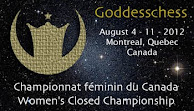


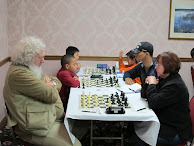

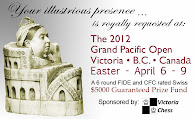

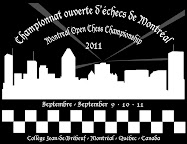










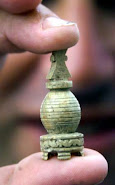











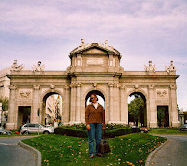


No comments:
Post a Comment